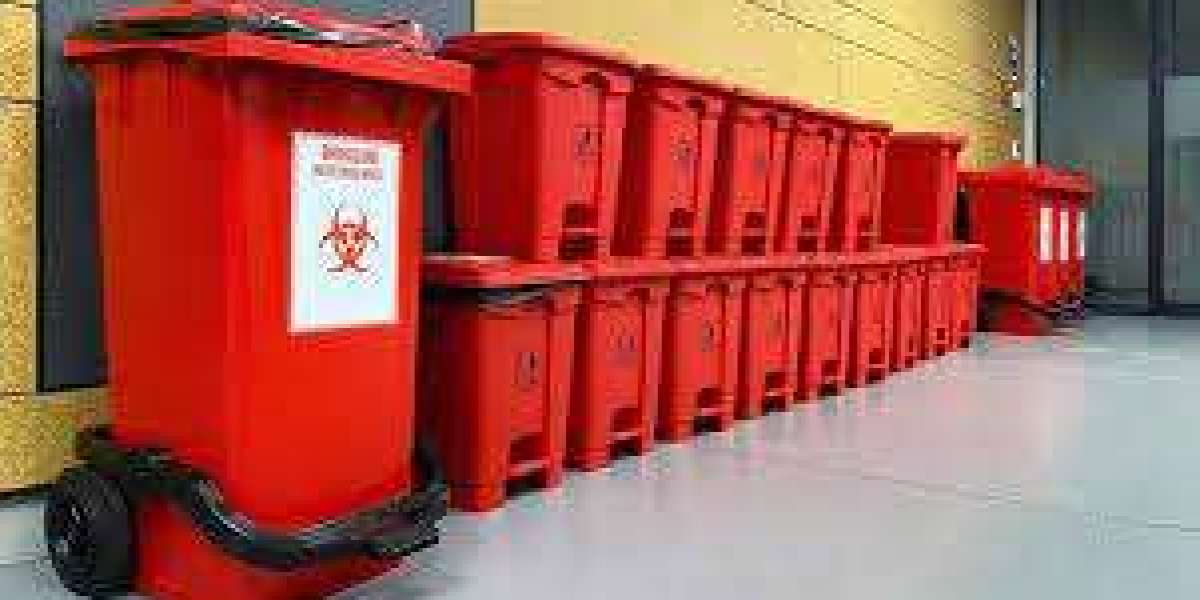Biomedical waste services have long been associated with the safe disposal of hazardous materials generated by healthcare facilities. However, in an era of increasing environmental consciousness, the industry is evolving to embrace sustainability and environmental responsibility. Efficient biomedical waste services are emerging as innovative solutions to reduce the environmental impact of medical waste. This article explores the importance of recycling and resource recovery in biomedical waste services, emphasizing the industry's commitment to environmental responsibility.
Biomedical Waste and Its Environmental Impact
Biomedical waste, also known as medical or healthcare waste, comprises a wide range of materials, including infectious waste, pharmaceuticals, sharps, and hazardous chemicals. The traditional approach to disposal, which often involves incineration or landfilling, poses environmental risks. These methods release greenhouse gases, consume energy, and deplete natural resources, all of which have detrimental effects on the environment.
The Environmental Responsibility Imperative
Recognizing the environmental challenges posed by biomedical waste, the industry is shifting towards more sustainable practices. Environmental responsibility has become a priority for healthcare facilities, waste management companies, and regulatory bodies. Recycling and resource recovery play a central role in achieving this goal.
Recycling in Biomedical Waste Services
Pharmaceutical Recycling: The disposal of expired or unused pharmaceuticals has long been a concern. Recycling programs enable healthcare facilities to return these drugs for proper disposal, reducing the potential for water contamination and minimizing waste.
Plastics and Packaging: Single-use plastics and packaging materials are significant components of biomedical waste. Recycling initiatives in this area can significantly reduce the environmental footprint by diverting materials from landfills.
Resource Recovery in Biomedical Waste Services
Metals Reclamation: Various medical devices and equipment contain valuable metals like stainless steel and aluminum. Resource recovery programs extract these metals and repurpose them, reducing waste and generating revenue.
Sharps Reuse: Certain sharp objects, such as needles and syringes, can be safely sterilized and reprocessed for various medical procedures. Recovering and reusing sharps reduces the need for new, single-use materials.
Environmental Benefits of Recycling and Resource Recovery
Reduction in Greenhouse Gas Emissions: Recycling and resource recovery divert waste from incineration and landfills, significantly reducing greenhouse gas emissions and combating climate change.
Conservation of Natural Resources: Recovering valuable materials like metals conserves natural resources and reduces the need for energy-intensive extraction processes.
Cost Savings: Recycling and resource recovery can lead to cost savings by reducing waste disposal expenses and, in some cases, generating revenue from reclaimed materials.
Environmental Compliance: Many regulatory bodies encourage or require healthcare facilities to implement sustainable waste management practices, which include recycling and resource recovery.
Challenges and Future Prospects
While recycling and resource recovery in biomedical waste services hold great promise, they are not without challenges. Facilities must invest in the necessary infrastructure and equipment for recycling and recovery processes. They also need to ensure compliance with strict regulations governing waste management.
In the future, we can expect to see more innovative technologies and processes that make recycling and resource recovery even more efficient and cost-effective. This will further promote the adoption of sustainable practices within the healthcare industry, ultimately benefiting both the environment and public health.
Conclusion
Recycling and resource recovery in biomedical waste services are vital components of the industry's commitment to environmental responsibility. By extracting value from waste materials, reducing the environmental impact, and mitigating public health risks, these practices contribute to a more sustainable and responsible healthcare sector. The adoption of recycling and resource recovery not only makes financial sense but also represents a responsible choice for the well-being of our planet and future generations.



